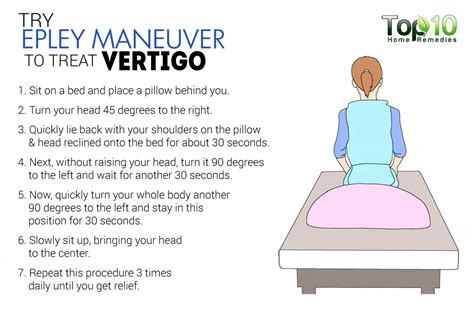How to Cure Vertigo: A Comprehensive Guide to Relief and Prevention
Vertigo, that sickening sensation of spinning or dizziness, can significantly impact your life. While there's no single "cure" for vertigo, as its causes are varied, many effective treatments and management strategies can provide significant relief and even prevent future episodes. This comprehensive guide will explore various approaches to help you conquer vertigo and regain your balance.
Understanding Vertigo: Identifying the Root Cause
Before diving into treatments, it's crucial to understand the underlying cause of your vertigo. Vertigo isn't a disease itself, but a symptom of various conditions, including:
- Benign Paroxysmal Positional Vertigo (BPPV): This is the most common cause, triggered by specific head movements. Tiny crystals in your inner ear become dislodged, disrupting balance.
- Vestibular Neuritis: Inflammation of the vestibular nerve, often following a viral infection, causing severe dizziness and imbalance.
- Meniere's Disease: This inner ear disorder involves fluid buildup, leading to vertigo, tinnitus (ringing in the ears), hearing loss, and a feeling of fullness in the ear.
- Migraine-Associated Vertigo: Vertigo can be a symptom of migraine headaches, even without the classic headache pain.
- Central Vertigo: This less common type originates from problems in the brain, such as stroke or multiple sclerosis.
It's crucial to consult a doctor for a proper diagnosis. They will conduct a thorough examination, including specific tests to pinpoint the cause of your vertigo. Self-treating can be dangerous, so professional guidance is essential.
Effective Treatments for Vertigo
Treatment strategies vary depending on the underlying cause. Your doctor might recommend:
For BPPV:
- Epley Maneuver: This series of head movements helps reposition the dislodged crystals in your inner ear. A healthcare professional usually performs this maneuver.
- Brandt-Daroff Exercises: These self-administered exercises can also help reposition the crystals. Your doctor will guide you on proper execution.
For Vestibular Neuritis and Meniere's Disease:
- Medication: Your doctor may prescribe medication to manage nausea, vomiting, and dizziness associated with these conditions. They might also prescribe medications to reduce inner ear inflammation.
- Vestibular Rehabilitation Therapy (VRT): This specialized therapy involves exercises designed to improve balance and reduce dizziness.
For Migraine-Associated Vertigo:
- Migraine Prevention Medications: Managing migraine headaches can often alleviate associated vertigo.
- Lifestyle Modifications: Identifying and avoiding migraine triggers, such as stress, caffeine, or certain foods, can help prevent episodes.
For Central Vertigo:
Treatment for central vertigo focuses on addressing the underlying neurological condition. This may involve medication, surgery, or other therapies depending on the specific cause.
Lifestyle Adjustments for Vertigo Relief
In addition to medical treatments, several lifestyle changes can significantly improve your condition:
- Hydration: Staying well-hydrated supports inner ear fluid balance.
- Diet: A balanced diet rich in fruits, vegetables, and whole grains provides essential nutrients.
- Regular Exercise: Gentle exercises, such as walking and swimming, can enhance balance and coordination. Avoid strenuous activities that might exacerbate symptoms.
- Stress Management: Stress can worsen vertigo. Practice relaxation techniques like deep breathing or meditation.
- Sleep Hygiene: Prioritize sufficient sleep for optimal body function.
Preventing Future Vertigo Episodes
Preventing vertigo depends largely on the underlying cause. For BPPV, avoiding sudden head movements can be helpful. For other conditions, managing underlying health issues and adhering to your doctor's recommendations are key to preventing future episodes.
Remember: This information is for general knowledge and does not constitute medical advice. Always consult with a healthcare professional for diagnosis and treatment of vertigo. They can accurately assess your condition and recommend the most appropriate course of action. Early intervention is crucial for effective management and improved quality of life.
